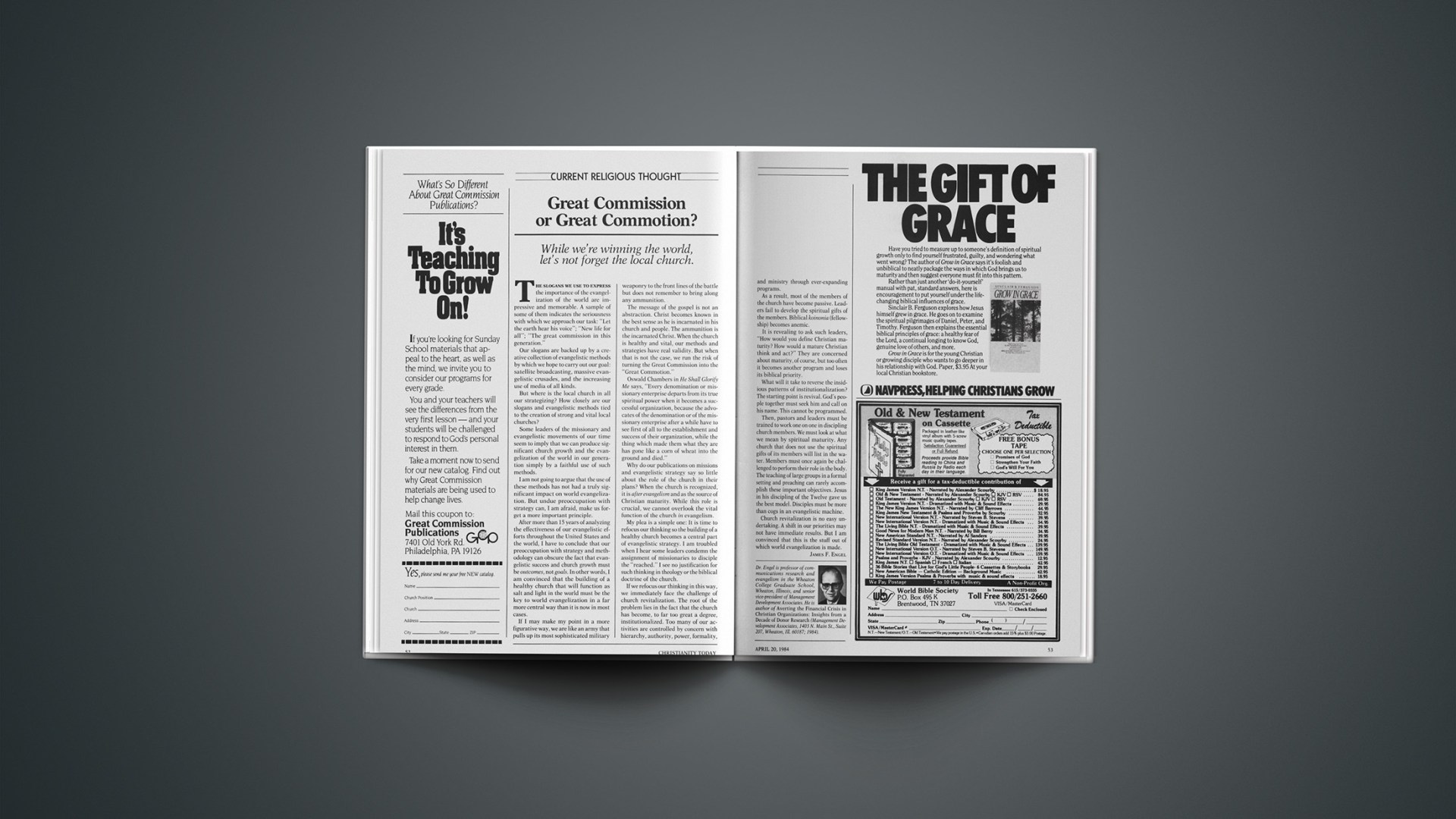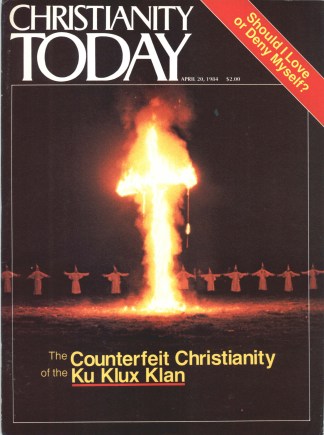While we’re winning the world, let’s not forget the local church.
The slogans we use to express the importance of the evangelization of the world are impressive and memorable. A sample of some of them indicates the seriousness with which we approach our task: “Let the earth hear his voice”; “New life for all”; “The great commission in this generation.”
Our slogans are backed up by a creative collection of evangelistic methods by which we hope to carry out our goal: satellite broadcasting, massive evangelistic crusades, and the increasing use of media of all kinds.
But where is the local church in all our strategizing? How closely are our slogans and evangelistic methods tied to the creation of strong and vital local churches?
Some leaders of the missionary and evangelistic movements of our time seem to imply that we can produce significant church growth and the evangelization of the world in our generation simply by a faithful use of such methods.
I am not going to argue that the use of these methods has not had a truly significant impact on world evangelization. But undue preoccupation with strategy can, I am afraid, make us forget a more important principle.
After more than 15 years of analyzing the effectiveness of our evangelistic efforts throughout the United States and the world, I have to conclude that our preoccupation with strategy and methodology can obscure the fact that evangelistic success and church growth must be outcomes, not goals. In other words, I am convinced that the building of a healthy church that will function as salt and light in the world must be the key to world evangelization in a far more central way than it is now in most cases.
If I may make my point in a more figurative way, we are like an army that pulls up its most sophisticated military weaponry to the front lines of the battle but does not remember to bring along any ammunition.
The message of the gospel is not an abstraction. Christ becomes known in the best sense as he is incarnated in his church and people. The ammunition is the incarnated Christ. When the church is healthy and vital, our methods and strategies have real validity. But when that is not the case, we run the risk of turning the Great Commission into the “Great Commotion.”
Oswald Chambers in He Shall Glorify Me says, “Every denomination or missionary enterprise departs from its true spiritual power when it becomes a successful organization, because the advocates of the denomination or of the missionary enterprise after a while have to see first of all to the establishment and success of their organization, while the thing which made them what they are has gone like a corn of wheat into the ground and died.”
Why do our publications on missions and evangelistic strategy say so little about the role of the church in their plans? When the church is recognized, it is after evangelism and as the source of Christian maturity. While this role is crucial, we cannot overlook the vital function of the church in evangelism.
My plea is a simple one: It is time to refocus our thinking so the building of a healthy church becomes a central part of evangelistic strategy. I am troubled when I hear some leaders condemn the assignment of missionaries to disciple the “reached.” I see no justification for such thinking in theology or the biblical doctrine of the church.
If we refocus our thinking in this way, we immediately face the challenge of church revitalization. The root of the problem lies in the fact that the church has become, to far too great a degree, institutionalized. Too many of our activities are controlled by concern with hierarchy, authority, power, formality, and ministry through ever-expanding programs.
As a result, most of the members of the church have become passive. Leaders fail to develop the spiritual gifts of the members. Biblical koinonia (fellowship) becomes anemic.
It is revealing to ask such leaders, “How would you define Christian maturity? How would a mature Christian think and act?” They are concerned about maturity, of course, but too often it becomes another program and loses its biblical priority.
What will it take to reverse the insidious patterns of institutionalization? The starting point is revival. God’s people together must seek him and call on his name. This cannot be programmed.
Then, pastors and leaders must be trained to work one on one in discipling church members. We must look at what we mean by spiritual maturity. Any church that does not use the spiritual gifts of its members will list in the water. Members must once again be challenged to perform their role in the body. The teaching of large groups in a formal setting and preaching can rarely accomplish these important objectives. Jesus in his discipling of the Twelve gave us the best model. Disciples must be more than cogs in an evangelistic machine.
Church revitalization is no easy undertaking. A shift in our priorities may not have immediate results. But I am convinced that this is the stuff out of which world evangelization is made.
Dr. Engel is professor of communications research and evangelism in the Wheaton College Graduate School, Wheaton, Illinois, and senior vice-president of Management Development Associates. He is author of Averting the Financial Crisis in Christian Organizations: Insights from a Decade of Donor Research (Management Development Associates, 1403 N. Main St., Suite 207, Wheaton, Ill. 60187; 1984).










